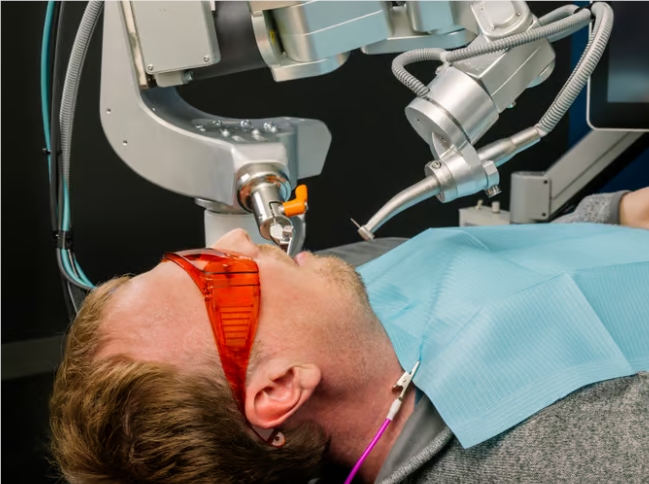Recently, a Boston-based company, Perceptive, made history: their AI-controlled fully autonomous robotic dentist performed an entire dental surgery on a human patient for the first time. This technology not only allows the surgery to be eight times faster than human doctors but also provides patients with more efficient medical services.

This robotic dentist uses a handheld 3D volumetric scanner, employing optical coherence tomography (OCT) technology to construct high-resolution 3D models of the oral cavity. This scanning method eliminates harmful X-ray radiation and can accurately detect 90% of cavities. Before the surgery, the patient and a human doctor discuss the treatment plan, and once decided, the robotic dentist takes over. It can plan the surgical procedure and execute it swiftly.
The robot's first specialized field is preparing dental crowns. Perceptive states that this is usually a two-hour procedure, often requiring two sessions, but the robot can complete it in about 15 minutes. Watching this robot work inside your mouth might be a bit unsettling, but its precision and efficiency could provide a better experience.
The company also states that the robot can operate safely inside the patient's mouth, even with movement from the patient. "We are thrilled to have successfully completed the world's first fully autonomous robotic dental surgery," said Chris Ciriello, CEO of Perceptive. "This medical breakthrough enhances the precision and efficiency of dental surgeries, providing better dental care experiences for more patients."
While many might feel uneasy about having a robot operate in their mouth, it may not be more daunting than having a human do it. After all, modern medical technology is constantly evolving, and robotic surgeries have made significant advancements in many fields. Now, imagine completing dental treatment in just 15 minutes, isn't that much better than the previous two hours?
Of course, despite the promising outlook of this technology, the robot has not yet received FDA approval, and Perceptive has not set a specific timeline for its rollout, which might take a few more years before it becomes available to the public.
Key Points:
🦷 The robotic dentist successfully performed a fully autonomous dental surgery on a human patient, eight times faster than a human.
🔍 The system utilizes OCT technology, eliminating X-ray radiation, and can detect cavities with high precision.
⏱️ The robot completes crown preparation surgery in just 15 minutes, enhancing patient experience and reducing visit time.









